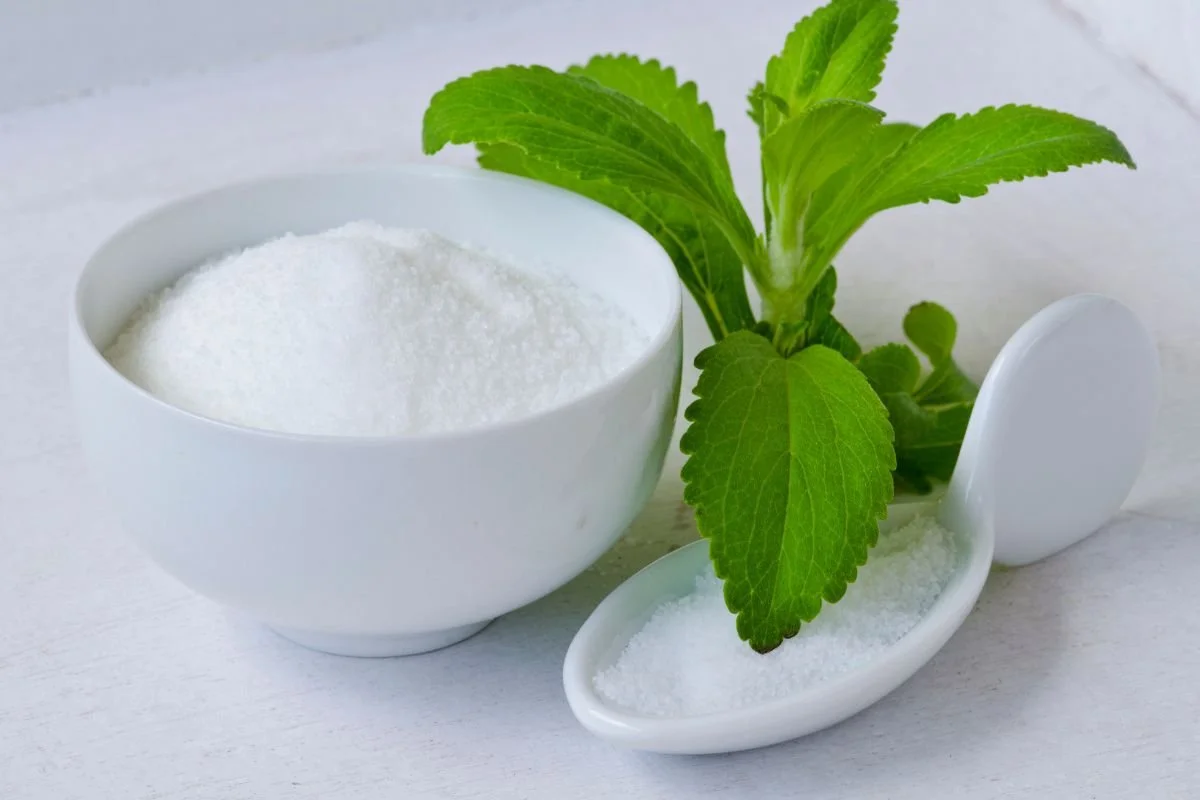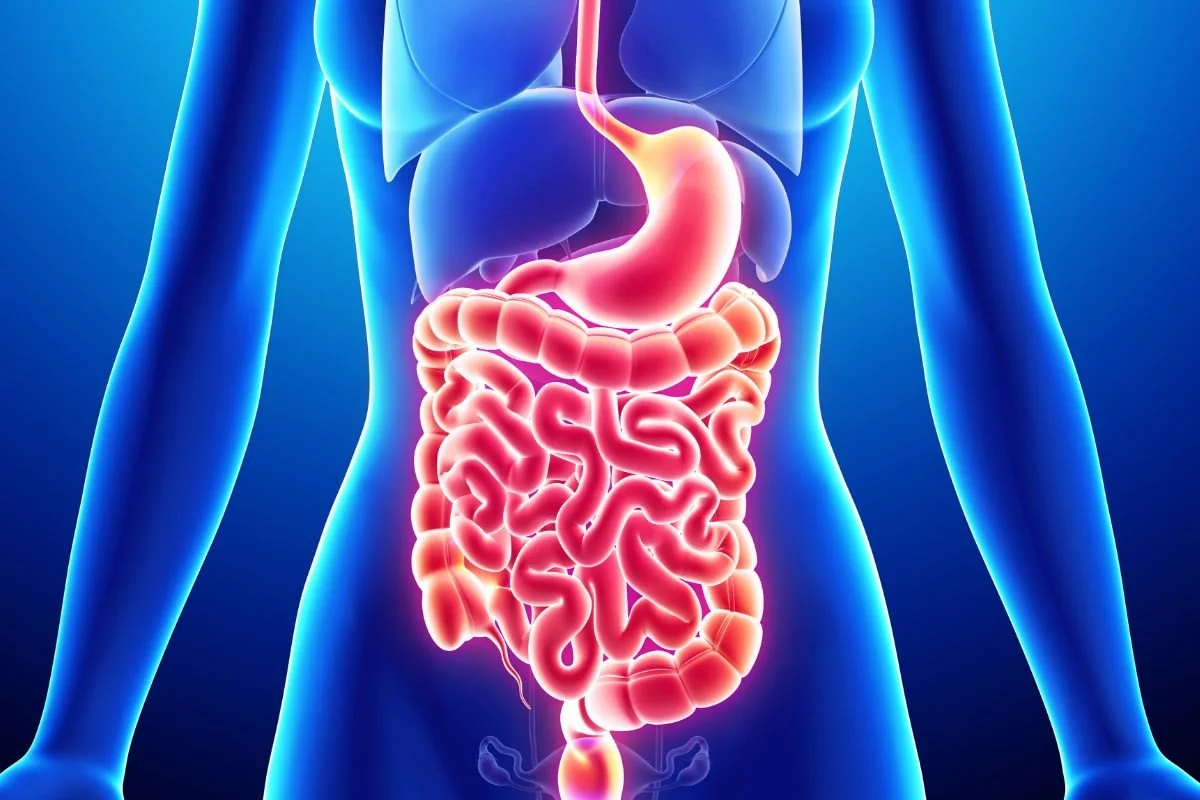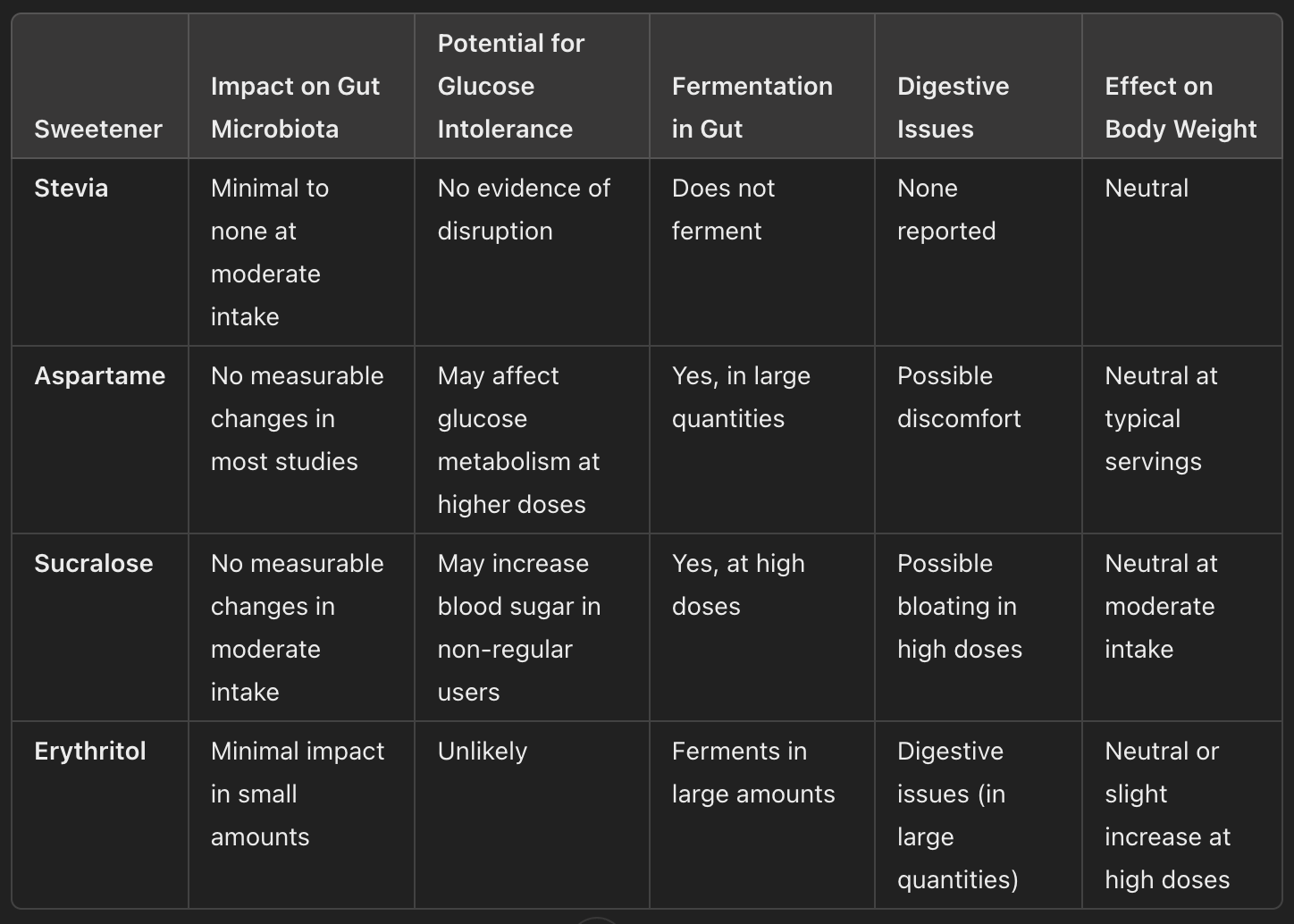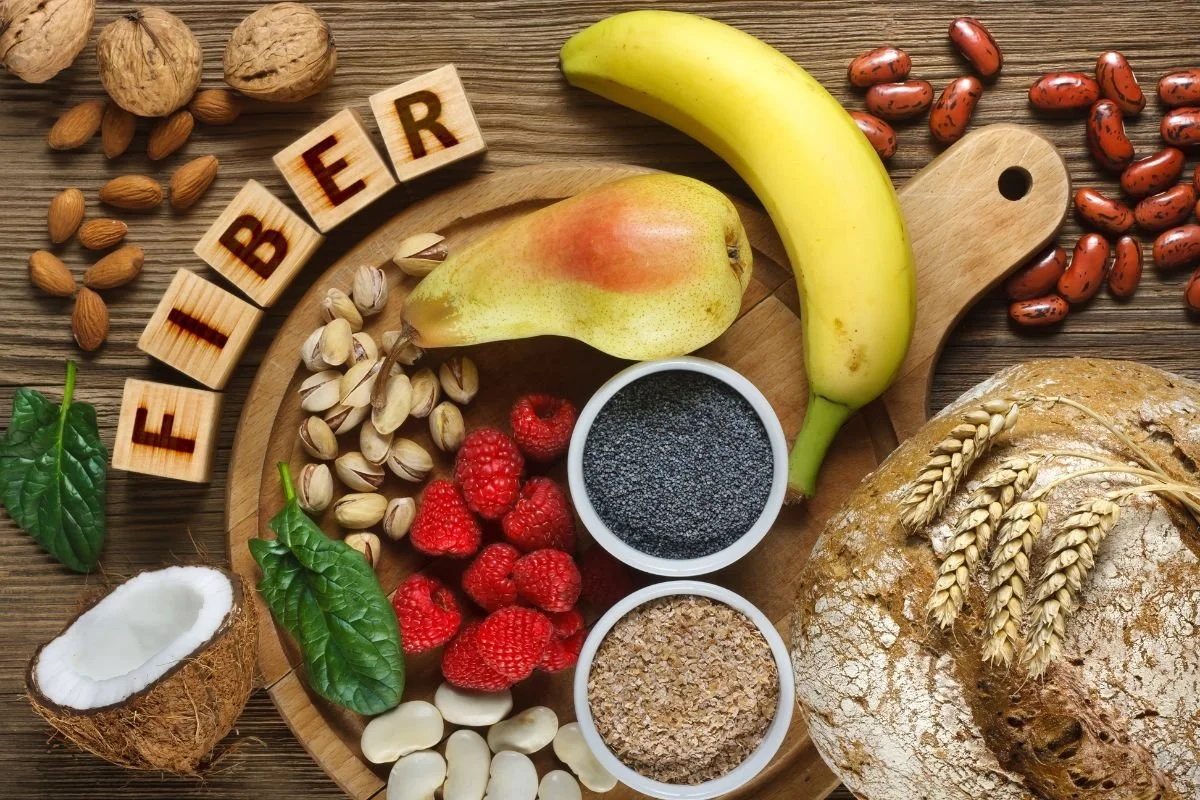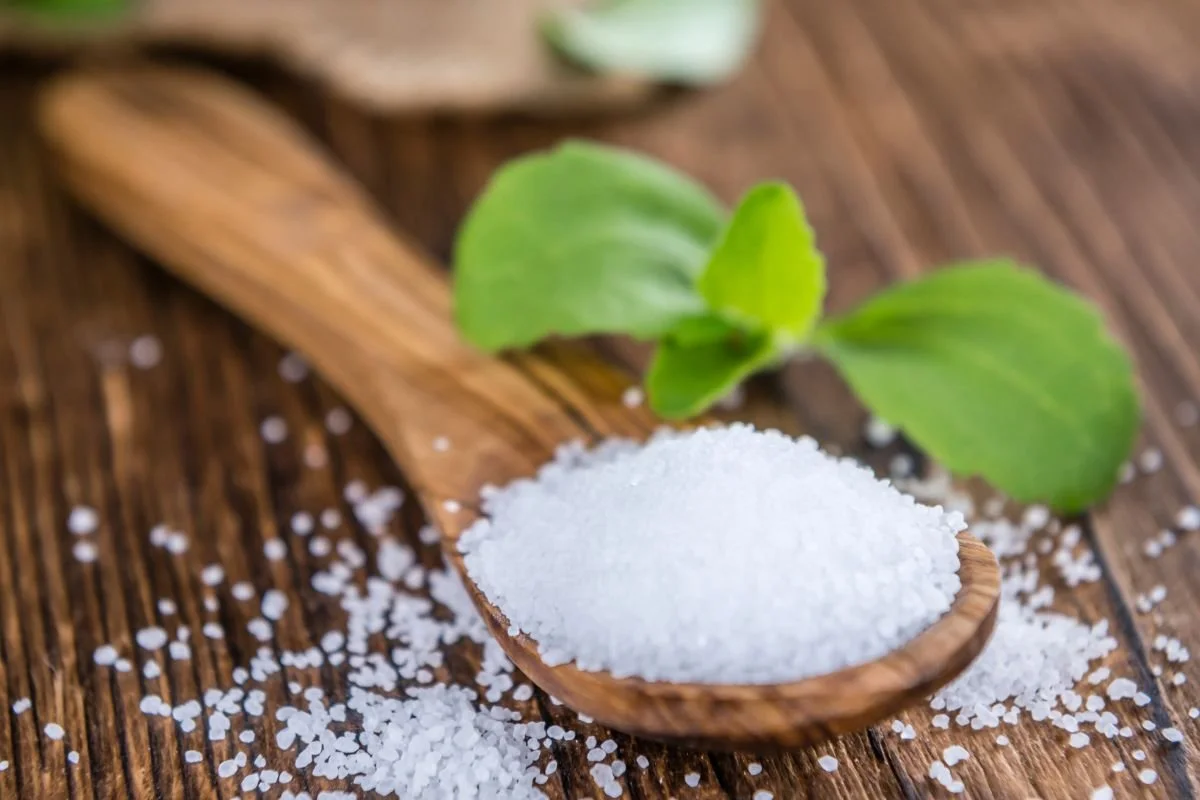Stevia's Effects on the Microbiome: What You Need to Know for Better Gut Health
Introduction
In recent years, the search for healthier alternatives to sugar has led to the rise in popularity of natural sweeteners like Stevia. Known for being calorie-free and plant-based, Stevia has become a favorite among health-conscious individuals looking to reduce sugar intake and manage energy intake without compromising taste. But as we learn more about how our food choices impact the human gut microbiome and gastrointestinal tract, a growing number of people are curious about the effects sweeteners—both artificial and natural—have on gut health.
While it’s well-documented that certain artificial sweeteners can negatively affect gut microbiota composition, leading to issues like blood glucose regulation and glucose intolerance, Stevia's impact remains a topic of ongoing research. Interestingly, existing studies suggest that Stevia consumption has relatively neutral effects on gut health compared to its artificial counterparts. Unlike other sweeteners that may disrupt the delicate balance of the human gut microbiota, Stevia doesn’t appear to cause the same level of disruption.
This blog will explore what the current science says about Stevia and its potential effects (or lack thereof) on the gut microbiome. We’ll dive into how Stevia compares to other sweeteners, address common misconceptions, and offer practical advice on incorporating Stevia into a gut-friendly diet.
What is Stevia?
Stevia is a natural sweetener derived from the leaves of the Stevia rebaudiana plant, native to South America. Used for centuries by indigenous peoples, Stevia gained global popularity as an alternative to sugar in the late 20th century. As consumers became more conscious of their energy intake, body weight, and its associated health risks, Stevia emerged as a popular option for those seeking a healthier, more natural alternative to traditional sweeteners.
One of the main appeals of Stevia consumption is that it offers sweetness without the calories or carbohydrates typically found in sugar. Additionally, it stands out for being plant-based, making it a preferred choice for people looking for natural, sustainable products.
Key Benefits of Stevia:
Calorie-Free: Stevia provides sweetness without contributing to daily caloric intake.
Plant-Based: As a natural extract from the Stevia plant, it’s a great option for those seeking alternatives to artificial sweeteners.
No Effect on Blood Sugar: Stevia doesn't impact glucose tolerance, making it a favorable choice for people managing blood sugar levels.
No Fermentable Sugars: Unlike some sweeteners that can lead to digestive issues, Stevia contains no fermentable sugars, which is crucial for maintaining gut health.
According to research, Stevia has been shown to have minimal impact on gut microbiota composition due to its natural origin and lack of fermentable sugars. In fact, unlike artificial sweeteners such as aspartame and sucralose, Stevia does not ferment in the gut. Stevia consumption has not been linked to disruptions in the human gut microbiota, which means it poses little risk to gut health. A study published by the National Center for Biotechnology Information (NCBI) emphasizes that Stevia is largely inert in terms of its interaction with gut bacteria, which further supports its neutral effects on the microbiome.
This makes Stevia a gut-friendly alternative for those looking to avoid artificial sweeteners that have been associated with glucose intolerance and imbalances in human gut microbiota.
Understanding the Gut Microbiome
The human gut microbiota is a vast and diverse community of trillions of microorganisms, primarily bacteria, that live in the digestive tract. These microorganisms play an essential role in our overall health by aiding in digestion, supporting the immune system, and even influencing mental health. A balanced gut microbiota is crucial for efficient nutrient absorption, protection against harmful pathogens, and maintaining overall well-being.
When the gut microbiota composition is balanced, it promotes optimal health. However, imbalances, or dysbiosis, in the human gut microbiota can contribute to various issues, including digestive problems, inflammation, and even metabolic disorders such as glucose intolerance. The types of foods we consume, as well as additives in our diet, can significantly affect this delicate balance. For example, an obesogenic diet alters metabolism in ways that can lead to long-term gut health issues, disrupting the microbiome and increasing the risk of metabolic disorders.
How Foods and Additives Can Disrupt Gut Microbiome Balance
High-Sugar and Processed Foods
Foods high in refined sugars and processed ingredients can have a negative impact on the gut microbiota. Excessive sugar consumption can promote the growth of harmful bacteria and reduce microbial diversity, leading to gut dysbiosis. Processed foods, which often contain preservatives and artificial additives, can further disrupt the gut’s natural environment.
Artificial Sweeteners
Artificial sweeteners such as aspartame and sucralose have been the subject of numerous studies concerning their potential effects on gut health. While some research indicates that these sweeteners may alter the relative abundance of gut bacteria, leading to reduced diversity, it’s important to note that much of the evidence comes from small or animal-based studies. The long-term impact of these sweeteners on human gut microbiota remains unclear.
For instance, some studies suggest that artificial sweeteners might contribute to disruptions in glucose metabolism, potentially increasing the risk of glucose intolerance and metabolic diseases like obesity. However, given the limitations of the current research—such as small sample sizes and a lack of human-based studies—the effects of aspartame and sucralose on the gut microbiome are still not fully understood. In short, the jury is still out, and more robust human studies are needed to draw definitive conclusions. You can read more about how artificial sweeteners may affect gut bacteria in this article by ZOE.
Antibiotics and Medications
Certain medications, particularly antibiotics, can have a profound impact on gut health. While antibiotics are essential for treating infections, they can also kill beneficial bacteria, leading to long-term imbalances in the human gut microbiota. Recovery from such disruptions can take weeks or even months, during which time gut health is compromised.
Stevia and Gut Health
While artificial sweeteners have sparked concerns about their potential effects on gut health, the research on Stevia is less conclusive. Current studies suggest that Stevia may not have a significant impact on gut microbiota composition, but the evidence is still limited and somewhat mixed. Unlike artificial sweeteners that ferment in the gut and may alter microbiome diversity, Stevia appears to be less likely to cause such disruptions. However, it’s important to note that more research is needed to fully understand its long-term effects.
In summary, while some artificial sweeteners have been linked to imbalances in gut bacteria, the overall impact remains unclear, and the same applies to Stevia. As with any sweetened food or beverage, it's always a good idea to consume Stevia in moderation as part of a balanced diet to support overall gut health.
The Science Behind Stevia and Gut Health
Several studies have examined Stevia’s interaction with gut bacteria, and the results have been largely positive. Unlike many artificial sweeteners, Stevia does not appear to disrupt the balance of gut bacteria. According to a study published in the Journal of Medicinal Food, Stevia has a minimal impact on gut microbiota composition, showing no significant changes in bacterial populations after consumption. The research suggests that Stevia consumption does not lead to the fermentation process in the gut, meaning it is unlikely to cause disruptions in microbiome diversity or negatively affect glucose tolerance.
One of the key findings from current research is that Stevia does not ferment in the gut, unlike artificial sweeteners such as aspartame or sucralose, which are metabolized by gut bacteria. Because Stevia passes through the digestive system without undergoing fermentation, it is considered gut-neutral. This makes it an attractive alternative for those seeking to avoid potential gut health issues associated with artificial sweeteners and a high-sugar or obesogenic diet alters metabolism in ways that can negatively impact gut health.
In contrast, studies on artificial sweeteners have revealed that certain types, like aspartame and sucralose, may disrupt gut microbiota composition, leading to imbalances in the gut that can affect glucose metabolism and even contribute to conditions such as glucose tolerance. These findings have raised concerns about the long-term impact of artificial sweeteners on gut health. However, in comparison, Stevia has been consistently shown to be inert in the gut, with no significant effects on microbial diversity or overall gut health.
While the existing evidence supports Stevia as a safe and gut-friendly option, it's important to emphasize that ongoing research is still needed. Gut health is a rapidly evolving field, and new studies may provide further insights into how Stevia and other natural sweeteners interact with the gut microbiome. However, based on what we know now, Stevia is one of the few sweeteners that can be enjoyed without worrying about significant adverse effects on the microbiome.
Comparing Stevia to Other Sweeteners
When it comes to sweeteners and their effects on the gut microbiota, not all are created equal. Some artificial sweeteners, such as aspartame and sucralose, have been studied for their potential effects on gut microbiota. However, recent research suggests that in typical dietary amounts, these sweeteners do not cause measurable changes in gut microbiota composition. Sucralose has only been shown to increase blood sugar in individuals who have not previously consumed artificial sweeteners regularly [Source link].
In contrast, sugar alcohols such as erythritol, though often seen as a better alternative to artificial sweeteners, can cause digestive issues when consumed in large amounts due to their fermentation in the gut.
Stevia, on the other hand, stands out as a natural sweetener that does not ferment in the gut and is not metabolized by gut bacteria. Because of its unique properties, Stevia consumption has been shown to have minimal to no impact on the human gut microbiota, especially when consumed in moderate amounts. This makes it a good option for maintaining gut health compared to both artificial sweeteners and sugar alcohols.
Comparison of Sweeteners and Their Effects on the Gut Microbiome:
As shown in the table above, Stevia’s unique ability to avoid fermentation and its minimal interaction with gut bacteria make it a gut-friendly alternative. Unlike aspartame and sucralose, which have not been proven to significantly disrupt the gut microbiota at moderate levels, Stevia is an inert option, providing sweetness without harming gut health or contributing to an increase in body weight. Sugar alcohols, while less harmful than artificial sweeteners, can still cause digestive discomfort in large amounts due to their fermentation, illustrating the importance of dosage when it comes to these sweeteners.
Key Takeaway on Non-Nutritive Sweeteners
Most non-nutritive sweeteners, including Stevia, aspartame, and sucralose, should be safe for gut health when consumed in moderation. The negative effects observed in some studies often involve much higher doses than are typically consumed in a standard diet. For most people, a couple of servings a day should not cause significant disruptions to the gut microbiome or metabolic health.
How to Use Stevia Without Harming Your Gut
Stevia into your diet can be easy and safe, as it offers sweetness without disrupting the delicate balance of the gut microbiota. Below are some practical tips to use Stevia without affecting your gut health.
Practical Tips for Incorporating Stevia into Your Diet:
Replace Sugar in Beverages: Use Stevia as a substitute for sugar in tea, coffee, and smoothies. This allows you to reduce your sugar intake while avoiding the gut-disrupting effects of artificial sweeteners.
Use in Baking: When baking, Stevia can replace sugar in many recipes. Since it does not ferment, it won't negatively impact the gut microbiota composition.
Choose Stevia-Sweetened Products: Many foods, from yogurts to snacks, offer Stevia-sweetened versions. Opting for these can help reduce the consumption of other sweeteners that may disrupt gut bacteria.
Control Portions: Stevia is much sweeter than sugar, so you need less of it. Use small amounts to avoid over-sweetening your foods and drinks, which helps in managing energy intake while still enjoying sweet flavors.
Combine with Gut-Healthy Foods: Pair Stevia with fiber-rich foods like fruits, vegetables, and whole grains to support your overall gut health. This combination helps maintain a balanced gut microbiome.
Stevia as Part of a Balanced, Gut-Friendly Diet
Incorporating Stevia into a balanced diet can be a great way to satisfy your sweet tooth without worrying about disrupting your gut bacteria. According to a study published in the Journal of Nutritional Biochemistry, Stevia consumption does not result in significant changes in gut microbiota composition. Unlike artificial sweeteners such as aspartame and sucralose, which have been linked to glucose intolerance and other metabolic issues, Stevia has shown a neutral impact on gut health [Study link].
Stevia’s unique property of not fermenting in the gut means it can be safely consumed without promoting the growth of harmful bacteria. This makes it a better choice for those looking to maintain a healthy gut microbiota and glucose tolerance. Combined with a diverse and fiber-rich diet, Stevia can contribute to a gut-friendly lifestyle that supports digestion and overall well-being.
Common Misconceptions About Stevia and Gut Health
Despite its growing popularity, there are still several misconceptions surrounding Stevia and its impact on gut health. Some believe that Stevia may negatively affect the gut microbiota, but research suggests otherwise. Let's debunk five common myths about Stevia and its effect on gut health.
Myth 1: Stevia Disrupts Gut Microbiota
One common concern is that Stevia may disrupt the balance of the gut microbiota in the same way that artificial sweeteners do. However, current research suggests that Stevia consumption has a minimal effect on gut microbiota composition. Unlike artificial sweeteners such as aspartame, Stevia is not metabolized by gut bacteria and does not cause the disruptions associated with these synthetic alternatives. Therefore, it is considered a gut-neutral option.
Myth 2: Stevia Leads to Glucose Intolerance
There is a misconception that Stevia, like some artificial sweeteners, could contribute to glucose intolerance. However, studies have shown that Stevia does not affect blood sugar levels or glucose metabolism in the same way as other sweeteners. In fact, Stevia has been used as a safe sugar alternative for people managing their blood sugar, and no evidence links Stevia to an increased risk of developing intolerance to glucose.
Myth 3: Stevia Is Fermentable by Gut Bacteria
Some people worry that Stevia ferments in the gut and causes digestive issues. This is not the case. Stevia does not undergo fermentation in the gut, meaning it does not promote the growth of harmful bacteria or contribute to imbalances in the gut microbiota. In contrast, sugar alcohols like erythritol can ferment in the gut and cause bloating or discomfort, but Stevia remains inert.
Myth 4: Stevia Harms Digestive Health Over Time
Another myth is that long-term use of Stevia could harm digestive health or lead to a gradual weakening of the gut's bacterial diversity. However, studies consistently show that Stevia does not interfere with gut health, even with prolonged use. Unlike artificial sweeteners that have been linked to negative effects on gut microbiota composition, Stevia remains a safe option over time.
Myth 5: Stevia Is No Better Than Artificial Sweeteners
Some people believe that natural sweeteners like Stevia are no better than artificial ones in terms of their impact on gut health. However, research paints a different picture. Artificial sweeteners such as sucralose and aspartame have been associated with gut dysbiosis, while Stevia consumption has not shown any significant impact on gut microbiota composition. This makes Stevia a better option for those concerned about maintaining a healthy gut.
The Neutral Impact of Stevia on Gut Health
According to the current body of evidence, Stevia does not negatively affect gut bacteria or overall gut health. In fact, Stevia’s neutral effect on the gut microbiota makes it a preferred choice for those looking to avoid the potential side effects of artificial sweeteners. Research continues to support Stevia as a safe and gut-friendly sweetener.
How to Support Your Gut Microbiome When Using Stevia
While Stevia is a gut-friendly sweetener that does not negatively impact the gut microbiota, maintaining a healthy gut requires more than just smart sweetener choices. Incorporating other gut-supporting habits into your lifestyle can help promote a balanced microbiome and overall well-being. Here are some general tips to support your gut health, even when consuming Stevia.
Eat Fiber-Rich Foods - Dietary fiber is one of the best ways to nourish beneficial bacteria in the gut. Fiber-rich foods like fruits, vegetables, legumes, and whole grains provide the essential fuel for your gut microbiota, helping to maintain a healthy gut microbiota composition. Including fiber in your meals supports digestion and overall gut function.
Incorporate Fermented Foods - Fermented foods like yogurt, kefir, sauerkraut, kimchi, and kombucha are packed with probiotics—live beneficial bacteria that can improve your gut health. Probiotic supplements can also be helpful in introducing diverse strains of bacteria to your gut, which can positively influence the gut microbiota. This is especially important if you’re aiming to maintain a balanced microbiome alongside Stevia consumption. Including both fermented foods and probiotic supplements in your routine can further support a healthy gut.
Maintain a Diverse Diet - Eating a wide variety of foods is key to promoting a diverse microbiome. The more diverse your diet, the more likely you are to support a broad range of gut bacteria, which is essential for maintaining glucose tolerance and overall metabolic health. A varied diet can also help prevent diet-induced imbalances in the gut microbiota. Ensure that your meals include a mix of fiber, protein, healthy fats, and fermented foods to keep your gut thriving.
Stay Hydrated - Proper hydration is often overlooked but plays a critical role in gut health. Drinking enough water helps with digestion and nutrient absorption, and supports the movement of food through your digestive system. Staying hydrated also assists in keeping your gut microbiota composition balanced.
Limit Processed, High-Sugar Foods and Food Additives- While Stevia can replace sugar in many recipes, it’s still important to limit your intake of processed foods, food additives, and added sugars. These can negatively impact your gut microbiota, leading to imbalances that may affect digestion and metabolic health, including an increased risk of intolerance to glucose and diet-induced obesity.
Stevia as Part of a Gut-Friendly Diet
Stevia can easily be part of a healthy, gut-friendly diet without the need for extra precautions. Stevia consumption does not require any special measures to maintain gut health, as it does not disrupt the gut microbiota like some artificial sweeteners. However, supporting your gut health involves more than just the choice of sweetener—it requires a combination of diet diversity, fiber, fermented foods, and hydration.
By following these general tips and incorporating Stevia into your balanced diet, you can enjoy sweetness without compromising your gut health.
Conclusion
Stevia has emerged as a popular natural sweetener, and based on current research, it appears to be a gut-neutral option. Unlike artificial sweeteners like aspartame and sucralose, which have been shown to disrupt the gut microbiota composition and contribute to potential health issues like glucose intolerance and diet-induced obesity, Stevia does not ferment in the gut or negatively affect gut bacteria. This makes it a safer and more gut-friendly alternative to sugar and artificial sweeteners.
If you're concerned about maintaining a healthy microbiome, choosing Stevia as a natural sweetener is a smart choice. You can enjoy its sweetness without worrying about its impact on your gut health.
Ready to take control of your gut health? Book a complimentary call with me today, and let's discuss how to create a gut-friendly plan that works for you! Schedule your call here.


